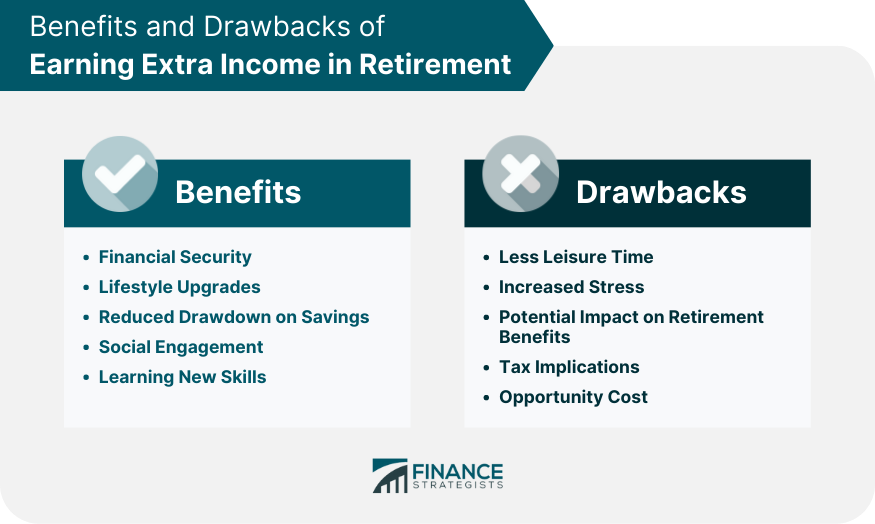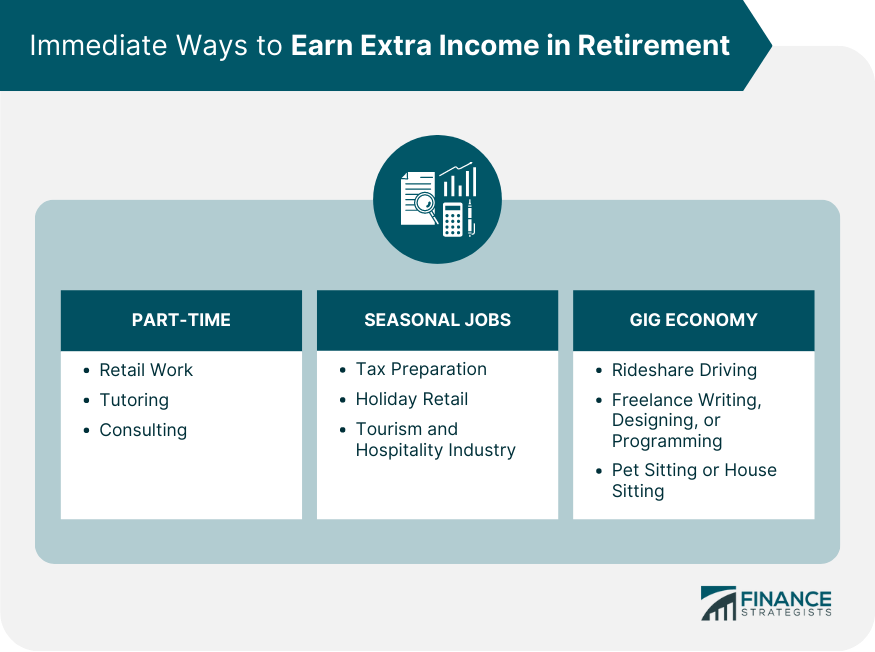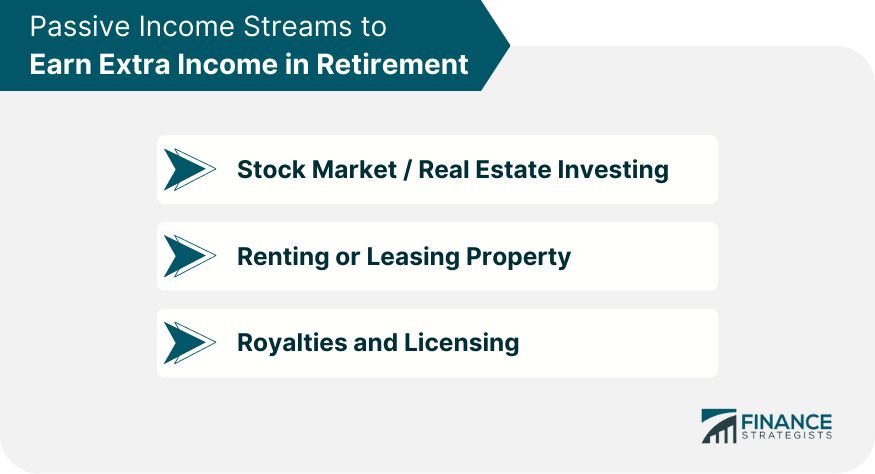Retirement should be a period of rest and enjoyment, but the reality for many retirees is often far from this ideal. One of the principal reasons for this is the effect of cost of living adjustments and inflation. Over time, prices for goods and services tend to rise, and this can significantly impact the purchasing power of fixed retirement income. The U.S. Bureau of Labor Statistics estimates that the inflation rate averaged around 3.4% for the 12 months that ended December as of January 2024. This means that a retiree would need an additional 3.4% each year just to maintain the same standard of living. Healthcare costs also pose a major concern for retirees. A report by Fidelity Investments estimates that an average retired couple age 65 in 2022 may need approximately $315,000 saved (after tax) to cover health care expenses in retirement. While this figure includes Medicare coverage, it does not account for over-the-counter medications, most dental services, and long-term care, which can add up quickly. It's crucial for retirees to consider these potential costs and how they might affect their overall retirement savings. Additionally, unexpected expenses can arise during retirement. These could be related to home repairs, helping out family members in need, or unforeseen medical expenses. Unexpected expenses can be the biggest budget buster for retirees, who often underestimate these costs. Financial independence and comfort are key to a fulfilling retirement. This entails having sufficient income to cover your living expenses, pursue your passions, and have the ability to handle emergencies without undue stress. Earning extra income can provide retirees with the peace of mind that they are not overly reliant on their savings alone. Financial Security: Extra income can provide a safety net for unexpected expenses or financial downturns, enhancing your overall financial security. Lifestyle Upgrades: An additional income source can fund travel, hobbies, and lifestyle enhancements that might otherwise be unaffordable. Reduced Drawdown on Savings: If you're earning extra income, you might not need to draw down as much from your savings or investments, allowing them to last longer or continue growing. Social Engagement: Many income-generating activities provide opportunities to socialize, network, and stay mentally active, contributing to better overall health and well-being. Learning New Skills: Earning extra income often involves acquiring new skills, which can be intellectually stimulating and personally fulfilling. Less Leisure Time: Generating extra income often means devoting time to work, potentially reducing time for leisure, relaxation, and family. Increased Stress: Any form of work can bring stress, potentially impacting your health and well-being. Potential Impact on Retirement Benefits: Depending on your situation, earning extra income might affect your eligibility for certain benefits, including Social Security. Tax Implications: Extra income could push you into a higher tax bracket or affect the taxes on your Social Security benefits. Opportunity Cost: The time and energy devoted to earning extra income could be invested elsewhere, such as volunteer work, self-care, or hobbies. Retail work is one of the most accessible types of part-time employment for retirees. Stores often need extra help, especially during peak hours and holiday seasons. Plus, many retail jobs come with perks such as employee discounts, which can help stretch your retirement dollars further. If you have a background in a particular subject area, tutoring can be an excellent part-time job. For example, a retired teacher could offer their services as a tutor in their subject area. This job has the advantage of being very flexible, often allowing you to set your hours and rates. Consulting allows you to utilize the professional expertise gained over your career. Many companies are willing to pay for the skills and knowledge of experienced professionals on a project or part-time basis. This is an ideal avenue for retirees who wish to continue working in their field at a lesser intensity. With the requisite skills and qualifications, tax preparation can provide a lucrative seasonal job. Every year during tax season, companies and individuals need help preparing their tax returns. Training is available from various sources, including the IRS’s Volunteer Income Tax Assistance (VITA) program. The holiday season often drives a surge in retail employment needs. Stores, both physical and online, may need extra help handling the increase in customers. This could involve working in a brick-and-mortar store, helping with online customer service, or even doing gift-wrapping services. Seasonal jobs in the tourism and hospitality industry can be an excellent choice, particularly for those living in areas with high tourist traffic. This could include working at local attractions, hotels, or vacation rentals. Rideshare platforms like Uber and Lyft provide an opportunity for retirees to earn money on their schedule. You get to meet new people, explore your city, and earn income, all at your own pace. Freelancing websites like Upwork and Fiverr have opened up a whole new world of opportunities for those with skills in writing, designing, or programming. Not only can these jobs pay well, but they also offer the flexibility to work from anywhere. For animal lovers, pet sitting can be a fun and rewarding way to earn extra income. Similarly, house sitting, through platforms like TrustedHousesitters, can offer opportunities for short-term jobs and even a chance to travel. Today, it's easier than ever to monetize your artistic skills or crafts. Websites like Etsy and eBay provide a marketplace for a vast array of handcrafted goods. Whether you're skilled in knitting, woodworking, jewelry making, or any other craft, you can find a customer base on these platforms. In addition to online sales, local craft fairs and markets can be an excellent venue for selling your handcrafted goods. Not only can you profit from your hobby, but you can also interact with your community and meet people who share your passion. If you're a skilled musician, consider offering music lessons. You can choose to do this in person or online. This can be a particularly fulfilling way to earn extra income, as it allows you to share your love of music with others. Art classes, like painting or ceramics, can be another rewarding way to monetize your talents. Whether you're holding classes in your home, at a local community center, or online, teaching art allows you to express your creativity while helping others do the same. Retirees with a background in education might consider academic tutoring. Many parents are seeking skilled tutors to help their children excel in school. This could be in general subjects or specific areas like math, science, or a foreign language. As a certified yoga or pilates instructor, you can help others achieve their fitness goals. You could offer classes at a local gym, community center, or even in clients' homes. If you're passionate about fitness, consider becoming a personal trainer. This allows you to share your expertise with clients, helping them to improve their physical health and confidence. With a background in nutrition, you can help clients to improve their diets and overall health. This might involve creating personalized meal plans, offering cooking classes, or providing grocery shopping guidance. Investing in the stock market can be a good way to grow your savings over time. While it comes with risks, smart investing can provide steady passive income in the form of dividends and capital gains. Real estate investing, whether through rental properties or real estate investment trusts (REITs), can provide a solid income stream. Rental properties, in particular, can provide regular monthly income, while REITs allow for investment into real estate without the need to directly manage properties. Platforms like Airbnb have made it simple to rent out a room or entire property for short periods. This can be an excellent way to earn money, especially if you live in a tourist-friendly location. If you have extra space in your home or property, consider renting it out for storage. Websites like Neighbor.com make it easy to connect with people in your area who need extra storage space. If you've always dreamed of writing a book, retirement might be the perfect time to do so. With self-publishing platforms like Amazon Kindle Direct Publishing, you can earn royalties on every book sold. If you have a unique idea or invention, licensing it to a company can bring in passive income. The company pays for the right to produce and sell your invention, and you receive royalty payments in return. If you're a photographer or musician, selling stock photos or music can provide a source of passive income. Websites like Shutterstock for photos and AudioJungle for music make it easy to sell your work to a global audience. Participating in online surveys and providing reviews can be a quick way to earn extra money. Websites like Swagbucks and Vindale Research pay for your opinion on various topics. Creating content through blogging, YouTube, or podcasting can provide a significant income if you're able to build a large audience. These platforms allow you to share your interests, experiences, or expertise with a wide audience, and you can monetize through advertisements, sponsorships, and affiliate marketing. Companies are often willing to pay for insights into consumer behavior. By participating in online market research, you can earn money while also influencing the development of products and services. Websites like Respondent and User Interviews connect researchers with participants and pay for your time and input. Earning extra income in retirement offers a number of benefits, including enhanced financial security, lifestyle upgrades, opportunities for social engagement, and the potential to learn new skills. However, it's essential to balance these benefits with potential drawbacks such as less leisure time, increased stress, impact on benefits, tax implications, and opportunity costs. Retirement should be a time of comfort and enjoyment, yet the reality often includes the impact of cost of living adjustments, healthcare costs, and unexpected expenses. To navigate these complexities, retirees can explore a plethora of income-generating activities, such as part-time employment, gig economy jobs, monetizing skills and hobbies, and building passive income streams. To make the best decision for your specific situation, consider seeking the guidance of a financial advisor or retirement planner, who can provide tailored advice to help you navigate your financial journey during retirement.Understanding the Need for Extra Income in Retirement
Explanation of Cost of Living Adjustments and Inflation
Impact of Healthcare Costs During Retirement
Potential Need for Unexpected Expenses
Addressing the Desire for Financial Independence and Comfort
Benefits and Drawbacks of Earning Extra Income in Retirement
Benefits
Drawbacks

Immediate Ways to Earn Extra Income in Retirement
Part-Time Employment
Retail Work
Tutoring
Consulting
Seasonal Jobs
Tax Preparation
Holiday Retail
Tourism and Hospitality Industry
Gig Economy
Rideshare Driving
Freelance Writing, Designing, or Programming
Pet Sitting or House Sitting

Utilizing Skills and Hobbies for Income
Craft and Art Sales
Using Online Platforms (Etsy, eBay)
Local Craft Fairs and Markets
Teaching and Tutoring
Music Lessons
Art Classes
Academic Tutoring
Personal Fitness or Wellness Services
Yoga or Pilates Instructor
Personal Trainer
Nutrition Consultant
Building Passive Income Streams
Investments
Stock Market Investing
Real Estate Investing
Renting or Leasing Property
Renting a Room or House on Airbnb
Renting Out Unused Spaces for Storage
Royalties and Licensing
Book Writing and Self-Publishing
Licensing a Patent or Invention
Selling Stock Photos or Music

Leveraging Technology for Extra Income
Online Surveys and Reviews
Blogging, YouTube, or Podcasting
Participating in Online Market Research
Final Thoughts
How to Earn Extra Income in Retirement FAQs
There are numerous ways to earn extra income in retirement, including part-time or seasonal work, leveraging your skills or hobbies, building passive income streams through investments, renting or leasing property, and leveraging technology, such as participating in online surveys or starting a blog or YouTube channel.
Retirees can monetize their skills or hobbies by offering services like teaching, tutoring, or wellness services. Alternatively, you could sell handcrafted goods through platforms like Etsy or eBay or at local craft fairs.
Yes, retirees can build passive income streams through various avenues such as stock market investing, real estate investing, renting or leasing property, or earning royalties from self-publishing a book or licensing a patent.
Earning extra income in retirement can impact pensions, Social Security benefits, and taxes, so it's important to consult with a financial advisor. Balancing extra work with leisure and family time is also crucial.
Technology offers numerous opportunities for retirees to earn extra income, from participating in online surveys and reviews, to creating content through blogging, YouTube, or podcasting, and participating in online market research.
True Tamplin is a published author, public speaker, CEO of UpDigital, and founder of Finance Strategists.
True is a Certified Educator in Personal Finance (CEPF®), author of The Handy Financial Ratios Guide, a member of the Society for Advancing Business Editing and Writing, contributes to his financial education site, Finance Strategists, and has spoken to various financial communities such as the CFA Institute, as well as university students like his Alma mater, Biola University, where he received a bachelor of science in business and data analytics.
To learn more about True, visit his personal website or view his author profiles on Amazon, Nasdaq and Forbes.











